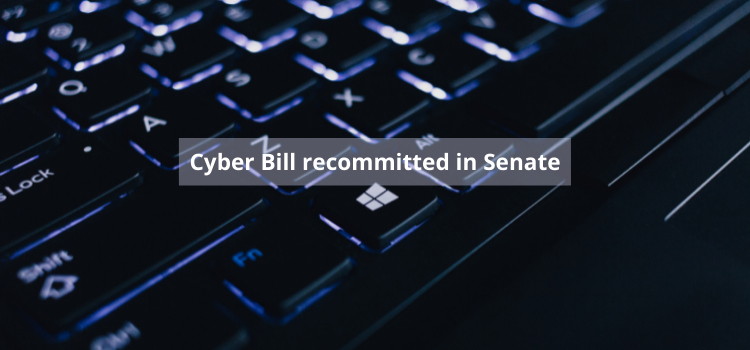The Cybersecurity and Data Protection Bill has been recommitted in the Senate to attend to some errors in the Bill.
The Bill has been recommitted in terms of Standing Order Number 158 to attend to some clauses after some errors were identified.
Recommittal means the clauses that need to be attended to have been referred back to the Committee Stage in the Senate for further attention.
Upon completion of this process, the Bill will undergo its Third Reading before being passed.
MISA Zimbabwe position on the Bill
In its submissions to parliament on the Cybersecurity and Data Protection Bill, MISA Zimbabwe, among other issues, recommended that the Bill be unbundled into three separate components notably: Cyber Security, Electronic Transactions and Data Protection Bills.
MISA Zimbabwe submitted that these were wide and complex issues that cannot be attended to in an omnibus bill as being proposed.
The organisation recommended the development of a framework that promotes a democratic and pro-human rights approach towards internet governance.
Other issues pertained to the role of the Postal and Telecommunications Regulatory Authority of Zimbabwe (POTRAZ).
MISA Zimbabwe recommended that an independent data protection authority that is answerable to parliament while its appointment processes are publicly conducted as is the case in other jurisdictions and best practice. The Authority should be accountable to Parliament and not the Executive to minimize the possibility of abuse of power by the Executive. Further, the rights of data subjects should be clearly defined, listed and reinforced with specific sections on their applications and should include the right of access, the right to be notified when there is a security breach among others.
The Bill should also clearly set guarantees for the protection of whistleblowers as well as other concrete steps in the handling of investigations that result from whistle-blowing revelations.
Concern was also raised on the term and use of “remote forensic tool” without providing judicial oversight on the use of such technologies.
MISA Zimbabwe, through its Chairperson, Golden Maunganidze, in its submissions to parliament, said such “far-reaching “ technologies should not be resorted to except in specified circumstances provided for under judicial oversight.









